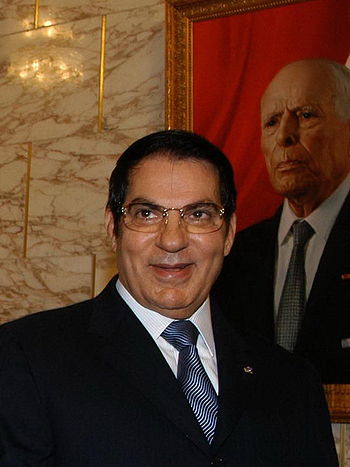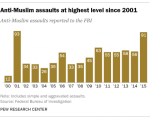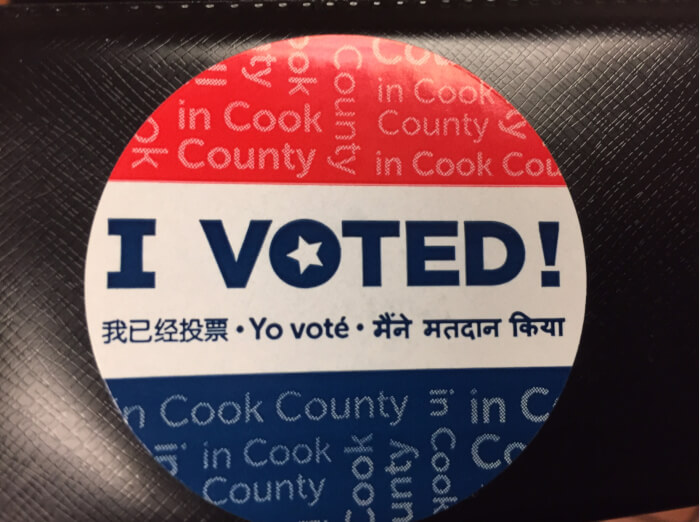Report accuses Tunisian government of failure to combat terrorism
By Ali Younes

A recent strategic study in Tunisia accused the current Islamist government in the country of negligence and collaboration with the terrorist and extremist groups.
The report published by the Center for the Security and Military Studies attributed the rise of new terrorism threats in “Arab Spring” countries like Tunisia to the atmosphere created by the new political orders that ushered to power political Islamic movements namely he Muslim Brotherhood organization.
Badra Gaaloul the author of the report attributed the rise of “Terrorism in Tunisia” specifically and in Arab Spring countries like Libya and Egypt, to the “deteriorating security and the rise of extremist religious thinking” in those countries. The report argued that three years after the Tunisian revolution that deposed the Tunisian dictator Zainulabedine Ben Ali, the country has yet to shift to stable democratic governance under the Islamist group Ennahda.
The reason for that, Gaaloul argues is the excessive freedoms that weakened the central government and because of the soft treatment of extremist groups that at the end strengthened their numbers and power in the country.
One stark example Gaaloul put forth in her report is the general amnesty the government issued for extremist elements which enabled men like “Saifuallah Ben Hussien” also known as “Abu Ayyad” as a an evidence of the Islamist government soft treatment of extremist elements in the country.
Abu Ayyad has since his release from prison established an “extremist group” called Ansar Al Sharea” based in the city of Qirawan and boast of 20,000 members strong according to the report.
Tunisia is grabbling with the rise of Salafist Jihadist groups within its borders and the extensive participation of young Tunisian men in the war in Syria and Iraq. According to published regional press reports there are about 3000 Tunisian men fighting in Syria alongside different extremist terrorist groups like the” Islamic State” also known as ISIS or ISIL and Al Nusra Front.
But the Tunisian government, however, argues otherwise and says that it does crackdown on terrorist and extremist elements in the country. Prime Minister Mehdi Jomaa told Reuters earlier this week that his government had arrested about 1,500 suspected jihadists this year alone as part of its crackdown on extremist groups in the country.
Part of the gathering security problems that the government is facing is the proliferation of unrest in neighboring Libya which has descended into chaos and became a failed state in the aftermath of its own revolution that deposed long time dictator Moammar Qaddafi in 2011.
Jomaa told Reuters that “Since the beginning of this year, we have arrested about 1,500 terrorism suspects. They will face justice in the coming months, including 500 who will be tried this month.”
Jomaa also said that the main problem his country is facing is that it is surrounding by Jihadists groups from all sides who coordinate their operations from Libya. Meanwhile, the United States, for its part, has said that it will help Tunisia combat terrorism by providing $60 million in military gear and anti-terrorism training.
But for Gaaloul the government is not doing enough and is actually part of the problem not the solution. She states in the report that “many voices in Tunisia accuse the Islamist government of having an established relationship with the extremist groups.” She also argues, in addition, that many in Tunisia ago as far as classify the extremist organizations as the militant arm of the Muslim Brotherhood organization.”
Ali Younes is the Editor of the Arab Daily News and can be reached at :aliyounes@thearabdailynews.com ,and on twitter @clearali
Related articles


- Arab Americans celebrate local candidates at annual forum - February 20, 2024
- Christian College to fire professor for saying Christians and Muslims worship the same God - January 7, 2016
- Jordanianagents arrest well-known anti-ISIS salafist Sheikh’s son - December 3, 2015














 Tunisia Election Faces Terror Threat
Tunisia Election Faces Terror Threat












